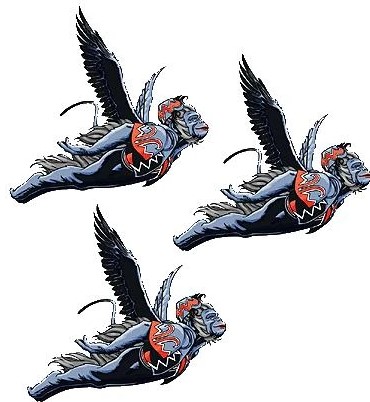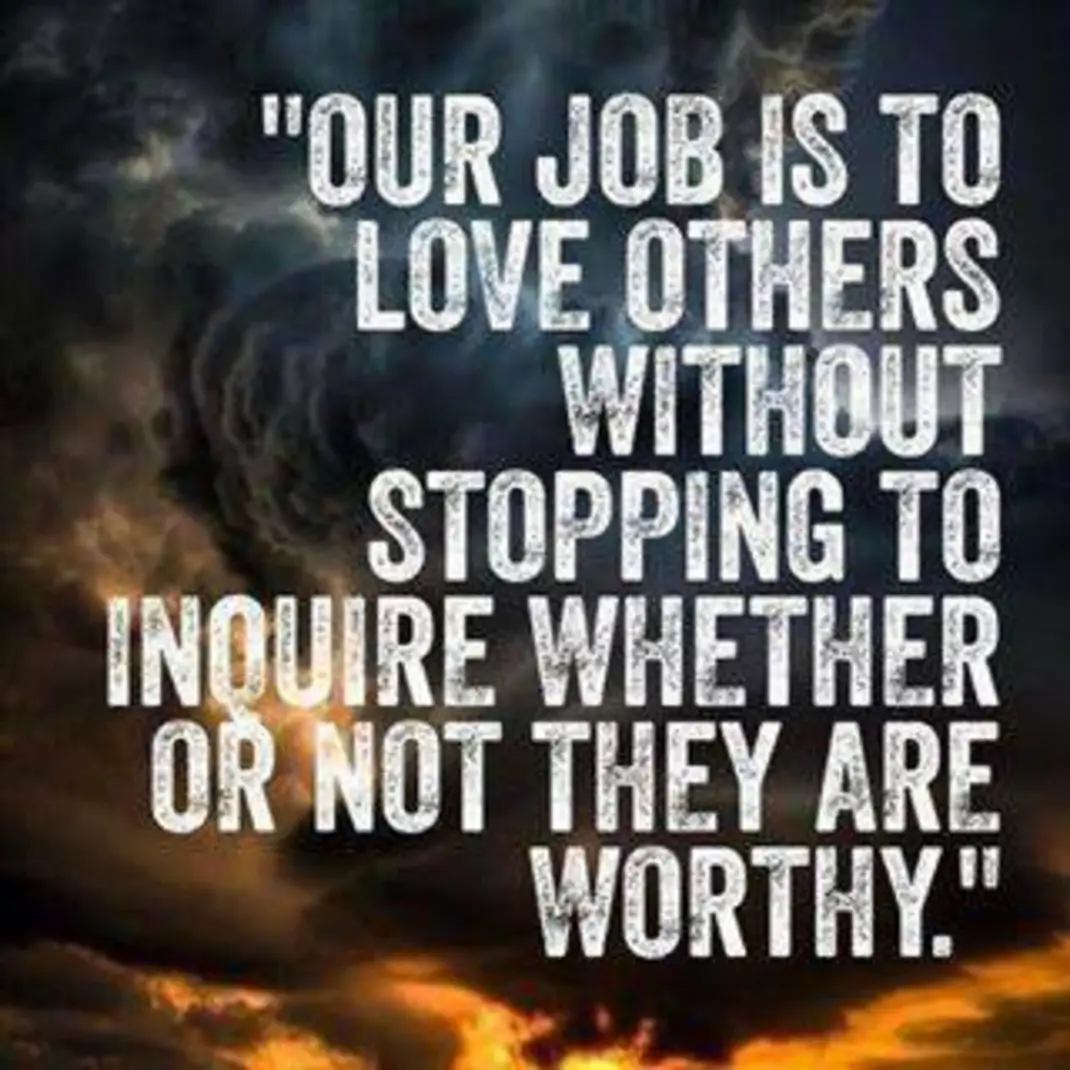Great, now do it with all of the confederacy crap
deleted by creator
I agree, the region has great food, fascinating environments, and some interesting culture, but the civil war and the conservative movement really did a number down there.
I see that shit in Canada. Canada!
American culture is, I believe, becoming more homogeneous over time as a result of information technology. Unless you’re from either rural Appalachia or some deep part of the South, you just don’t have an accent. Or rather, you have a generic “American” accent.
Yeah I’m absurdly good at not speaking in my native Appalachian accent, opting instead for a sort of “generic midwest.” Unless I’m tawking to ma day-ed-dy, n’ then all bets is awf."
My sister and I cover so well and so often that none of her four children who are literally being raised in Charleston, West Virginia has even a trace of our accent.
I came here to say essentially the same thing. It’s hillbilly code-switching; if you speak without an accent most of the time, but then meet someone who speaks that way, you can put the accent “back on” again and immediately gain a massive boost to your charisma stat when you need it.
I do it all the time at work. No accent until I’m providing care for someone with a southern accent, then bam! “Well, ah doan know whai inneewon wooden lissen to me!”
YEP. Same. It’s always entertaining at work to watch a colleague who’s never heard my accent before hear me speak to a patient from Appalachia or the south
Information technology - and contact, in general - is at most the “grease” smoothing out this sort of change, not the cause itself. The actual cause is usually social and ideological. Nationalism, lower prestige associated with the dialect in question, this kind of thing.
That happens because we use speech itself to highlight who we identify ourselves with.
Another thing to consider is that a lot of traits usually associated with Southern American English ended associated with African American Vernacular English instead - non-rhoticity, gerund in /n/ instead of /ŋ/, etc. So at least in this case this might have a component of racism (I do not know if it does), where locals would rather be associated with whites from another region than with black people in their own region.
The article also mentions another component - generations. People not wanting to speak like a boomer, and attributing the traditional dialect to boomers.
For contrast: in Brazil I’ve been informally noticing the opposite trend, at least in my region, with kids sometimes having a thicker accent than even me (and my own is already thick), with the accent levelling being mostly local between the rural zone and nearby urban centres. Info tech is still everywhere here, and those same bloody kids don’t stop staring those bloody phones because of their bloody
zapzapWhatsApp, but they still prefer to speak like locals instead of adopting somewhere else’s accent. (I’m mentioning kids because dialect change is usually cross-gen.)It’s still weird for an accent to vanish so fast for a country the size of the US. I’m from the country the size of Maine, and while the accents got much closer during the 20th century due to standardized education and mass media, I can usually identify where someone comes from quite easily. (And since in the last 20 years or so there has been more representation of regional accents on TV so I don’t think they are going anywhere any time soon).
For a cultural feature to fade fast, there needs to be a conscious effort from people to avoid it.
Why would you use an accent when it actively gets you associated with idiots / racists / conservatives?
There’s a lot of people who have been hurt by Southern culture, so naturally they reject that accent. A lot of decent people reject the accent because they don’t want people to assume they’re one of those Southerners. There’s also the aspect that you end up talking to people outside your region a lot more often than in the old days, so you learn to switch it off because people outside your region might not understand you well.
Like a melting pot?
Yep, parts of my family have it and other parts do not.
This is happening to every country.
Y’all itself seems to be spreading, though.
It’s contagious as heck. I’ve never been to the South but somehow y’all fitted itself into my lexicon.
True story: in the early 00s, my company was acquired by a Large Silicon Valley Company. LSVC sent a “business integration” team across the country (to Dallas, Texas where we were at the time) to welcome us into the fold. At these meetings, these Perky Northern Californian Women - they were all Perky Northern California Women, for whatever reason - opened with the following sentence:
“We’d like to welcome y…ya…y’y’y’y’y…YA UL(!) to LSVC.”
Repeated throughout the meeting, the integration team kept stumbling over “y’all” instead of just saying “you” when talking to us. Clearly, someone thought that - being Texans - we wouldn’t understand them unless the did.
At one point, one of us spoke up and said something like, “First, thank you for attempting to use our local dialect to talk to us. But, we can understand you perfectly well when you speak your native Northern Californian. Second, by way of correction, the word is just “y’all”. Also, if you want to use the plural second person, like vous in French, you may say “all’y’all”, but it is optional.”
Repeated throughout the meeting, the integration team kept stumbling over “y’all” instead of just saying “you” when talking to us. Clearly, someone thought that - being Texans - we wouldn’t understand them unless the did.
Absolute cringe.
Also, remind me what the difference between y’all and all y’all is again.
all’y’all is the plural second person form.
Sheriff, speaking to a number of bandits: All’y’all just put yer guns down and come out with yer hands up so we can end this all peaceful like.
Doesn’t y’all refer to a plural group as well though? You can’t call just one person y’all.
It can do both. As indicated, all’y’all is optional and probably falling out of fashion. While I’ll use y’all in almost any sentence, I’ll only pop out an all’y’all when adopting speech patterns around other native speakers.
When we are in foreign Romance language countries and guesting with people, we always teach them how to say hello in Texan. Once, in a farmhouse in Burgundy, I was eating dinner with a farmer and his wife. A simple meal of eggs stewed in wine, bread, and cheese. The conversation, in French, turned to speaking some English, and we offered to teach them how to say “Bonjour” in Texan. We taught them “Howdy, y’all.” The elderly farmer sat back in his chair stroking his chin, then in a perfect country drawl repeated it back to us, sounding like a native Texan. We decided all farmers must have the same accent worldwide. EDIT: In fact, what most surprised us was that he nailed the initial H sound, something most people in France we encountered had trouble with.
We continued the conversation and said that in Texan, like French, there’s a plural second person form equivalent to vous that we sometimes use, and it’s all’y’all.
All y’all is broader, but I’m not sure how to characterize it. Like if you’re talking to someone who is part of a team, saying y’all could ambiguously refer to the whole team, but all y’all unambiguously refers to the whole team.
Oh, okay, so just like “all of you” in other dialects, then.
Yeah, more or less.
I’d guess it’s just not natural to have a missing pronoun like English has since the days of thou (which was the original singular).
Y’all been spreading for a long time. It’s just easier to use.
I try actively not to use it, because I associate it with a backward culture.
I grew up in the southeast US and while I don’t think I have a strong accent and have tried to cut other southern things out of my speech, I quite like “y’all”. In my opinion it’s the best gender neutral second person plural word. Most others are needlessly gendered or sound even weirder.
I hear you on the needlessly gendered words. I also try not to use words like “guys.” Instead, I use words like “everyone” or just “you.” They work just fine in most instances. On rare occasions, I sneak in a “you all.” Same content without the southern sound.
I’m pretty sure I sound like even more of a hick than usual if I try to say “you all” over just admitting defeat and saying “ya’ll”.
Politics has always held sway over the spread of dialects. You’ll be happy to know that the language lasts longer than any associations, most people don’t even know about Willie the Bastard anymore.
deleted by creator
My own two cents, I spent a good chunk of my childhood in the middle of nowhere Georgia, and have actively suppressed Southern-isms in my vernacular. I associate it with a time in my life where I was at the whims of people whom had neither my best interests or even their own at heart; trapped within a culture that promoted ignorance and blind fanatical devotion to evangelical hucksters. I can appreciate that this experience may not ring true for everyone from the south, and that there are plenty of southerners that don’t conform to outdated values.
Nonetheless, I can’t say I’ll be sad to see it go.
I still say “y’all.”
Y’all means all.
I’ll take a “Y’all” over “Yous Guys” any day.
Nope. Yous guys is way better.
I’ve actually seen this. I live in an area where people used to have a thicker accent.
Now everyone seems to have blended into sounding similar to the sort of West Coast TV accent.
You mean like this?
Hwhat?
Y’all believe this guy?
That boy ain’t right
It makes me kind of sad to see so many people happy that the accent is going away. It’s good to have diversity, and the thought of my “native” accent becoming extinct makes me sad. I don’t want bad people to have a claim to an entire accent and culture, especially since the death of the accent won’t do anything about the bad takes. There’s a lot that good about southern culture - taking things slow, being laid-back in a world that wants you to run around like a chicken with your head cut off, and forming tight communities with the people around you. I just wish there was a way to reclaim that without feeling afraid that people would assume I support the bad parts, too.
Am I wrong or is there a trend toward self-consciously rural, white identity types affecting a broad southern accent regardless of where they’re actually from? Like it’s become an identity thing instead of a regional one.
I spent the better part of my 20’s traveling all over America. During those years my bases of operation were either the suburbs of NW North Carolina or the trailer parks of NE Ohio.
I heard plenty of southern affectation in the trailer parks just south of Cleveland. For reference, Cleveland is across the lake from Canada. There’s no reason ANYONE in Ohio should have such an accent short of their own moving from south of the Mason Dixon. That said, there’s more America below the Mason Dixon than above.
This is a little difficult for me to reconcile. Dialect is the best way to determine an ethnicity, and Southern culture is more than the stereotypes (although they indeed often apply). I have only ever lived in the Southern US, and there are cultural factors here which don’t exist elsewhere. Our cultural heritage is significantly more based in West African tradition than for example the Northeast or the Midwest and the specific mix of influences we have here is different than anywhere else. Even though this is the case, there is also a very real association among white southerners to the Confederacy, and this African influenced dialect of white American English is associated with antebellum white supremacy among southern whites which certainly caused me to avoid speaking like that when I was growing up. I really wish the development would have been in the direction of embracing our entire cultural heritage with pride rather than abandon everything about it to assimilate to a generic white American culture. It’s kind of an improvement, but the improvement could have been keeping the best aspects of what we have here. Reparations and reconciliation could have been a thousand times better, but white supremacy is what it is so here we are.
deleted by creator
Good. It’s horrible.
Makes fer a naaice candor fer a dramatized killer or two I reckon.
















